Idea by
Alejandro Carrasco
http://alexcarrascohidalgo.com
Call for ideas 2020
The Possibility of an Island
The Possibility of an Island
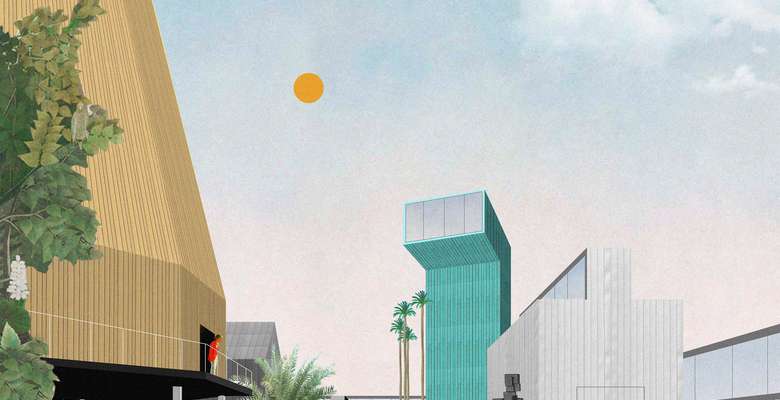
- Systemic changes
The productive system has drastically evolved in the recent years, with a crescent automatization of industrial activities, where human intervention is becoming more intellectual and less physical than ever. The production of sensitivities and emotions is the new main sector and production is not going to be as we knew it anymore, as material production is going to be completely detached from human bodies. We can consider then that the intellectual is the worker of the 21st century while Franco Berardi defined this new social class as the cognitarians.
In this ecosystem of production and evolution it is proposed to take advantage of the territorial isolation of the countryside to develop productive structures based on intellectual activities (that are not considered as work anymore but as leisure). A place where the most prepared cognitarians will have the opportunity to know and learn from each other, giving them a real alternative to their precariousness or exile situation.
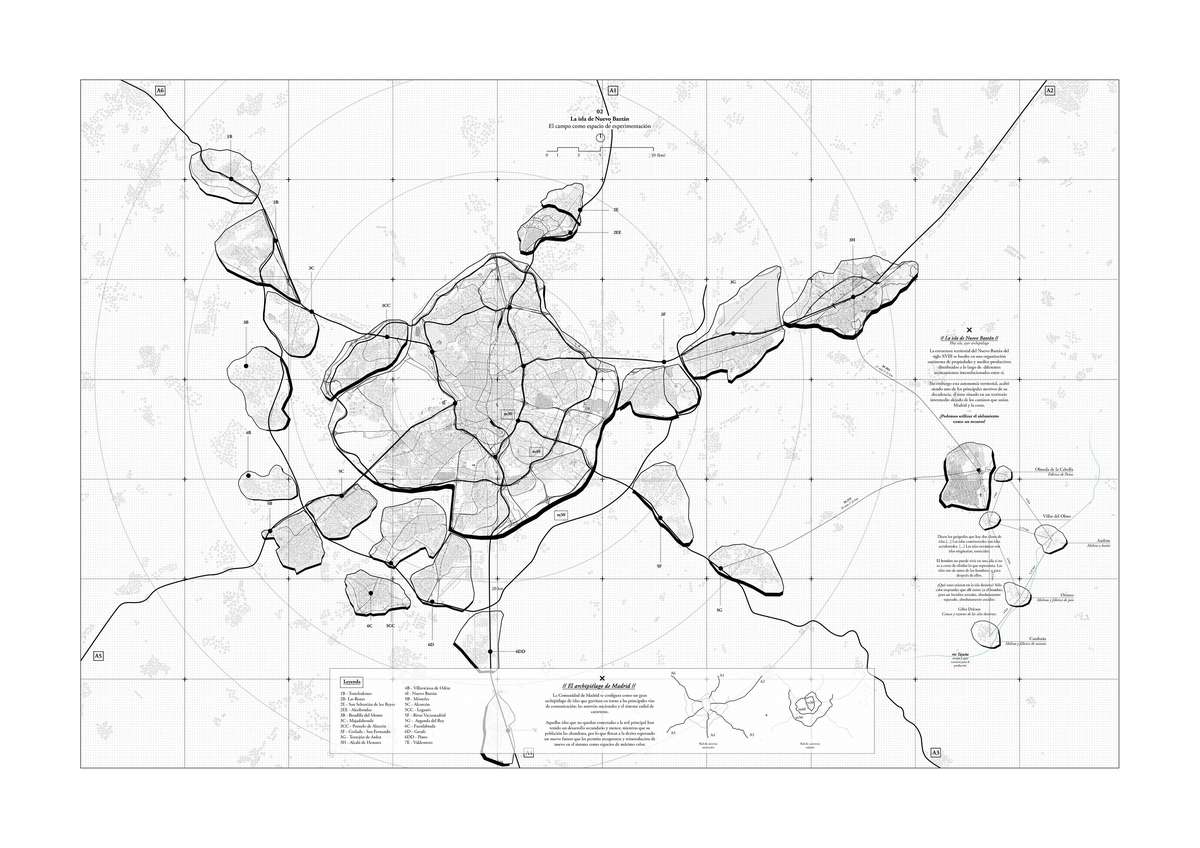
The territorial and infraestructural isolation of Nuevo Baztán enables the possibility of stablishing and experimental productive community, far from Madrid and its economical dominance.
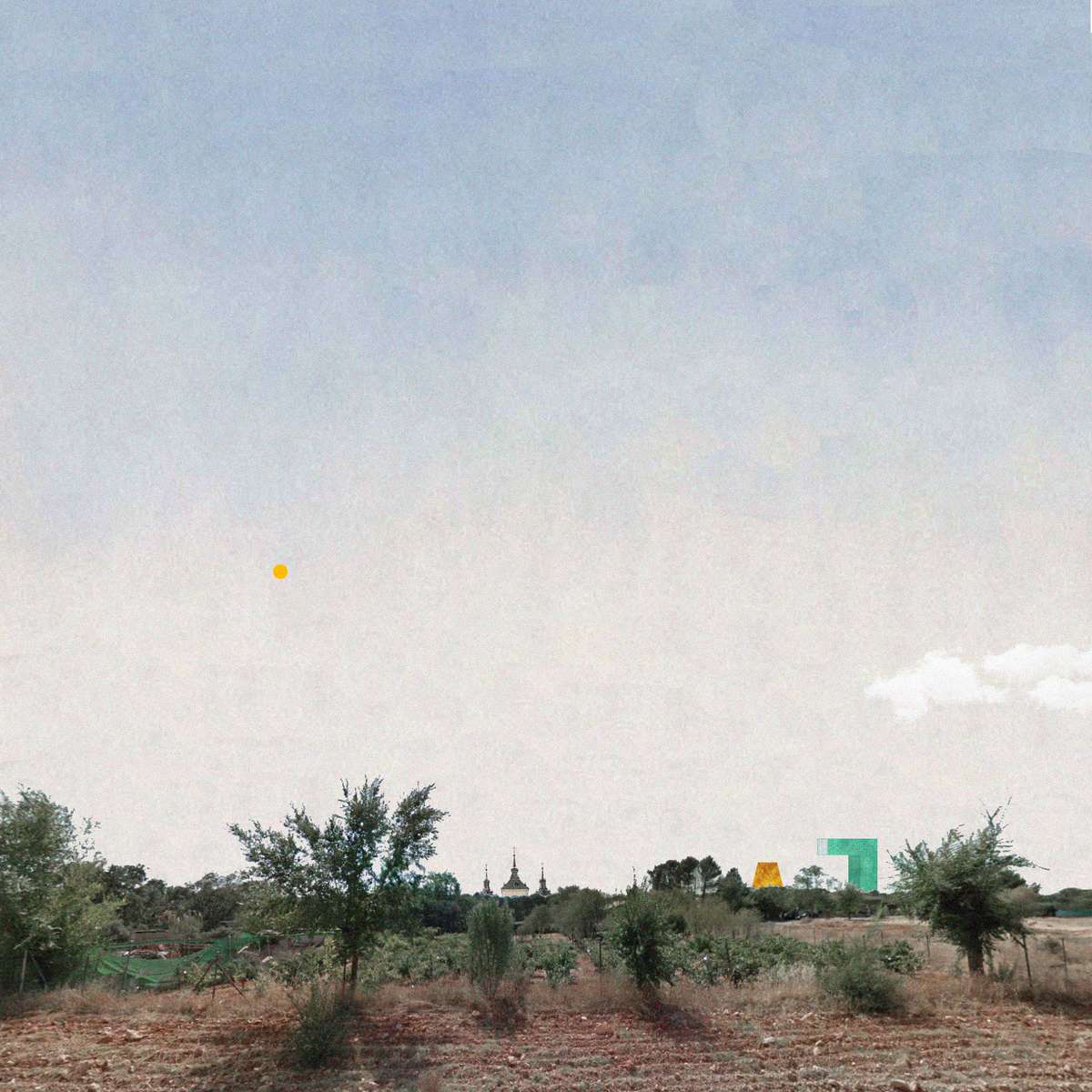
The new architecture of production will resemble those who already inhabit the countryside: water deposits, barns, sheds,...elements that articulate both visually and territorially the rural space.
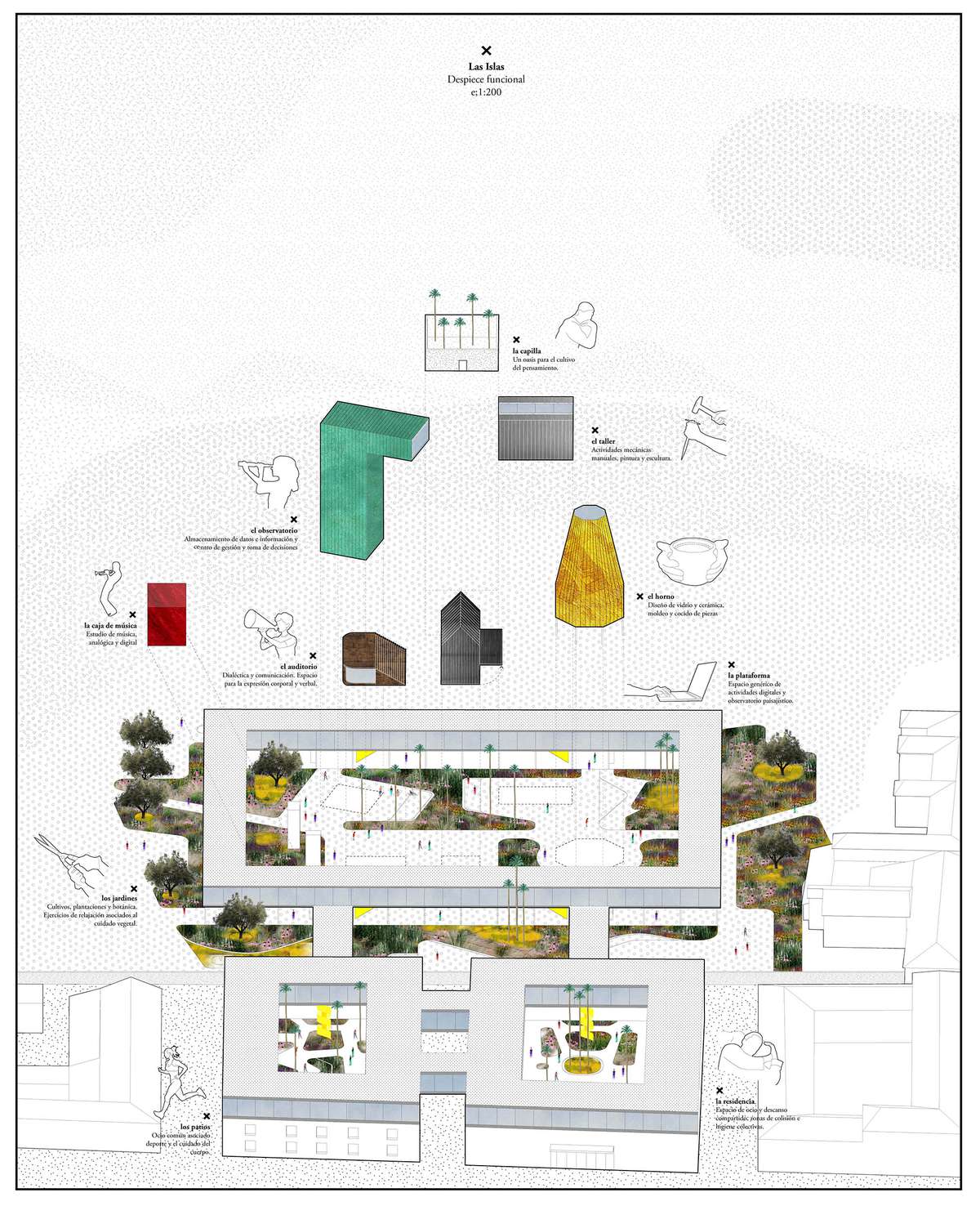
Different architectural pieces will host both manual and digital creative activities, helping cognitarians to trigger their potentials and find new inspirations from each other.

The digital ring will host a continuous open workspace, that surrounds the manual work pieces where physical creative works will be deployed, such as sculpture, ceramics, glass production, theatre, debate…
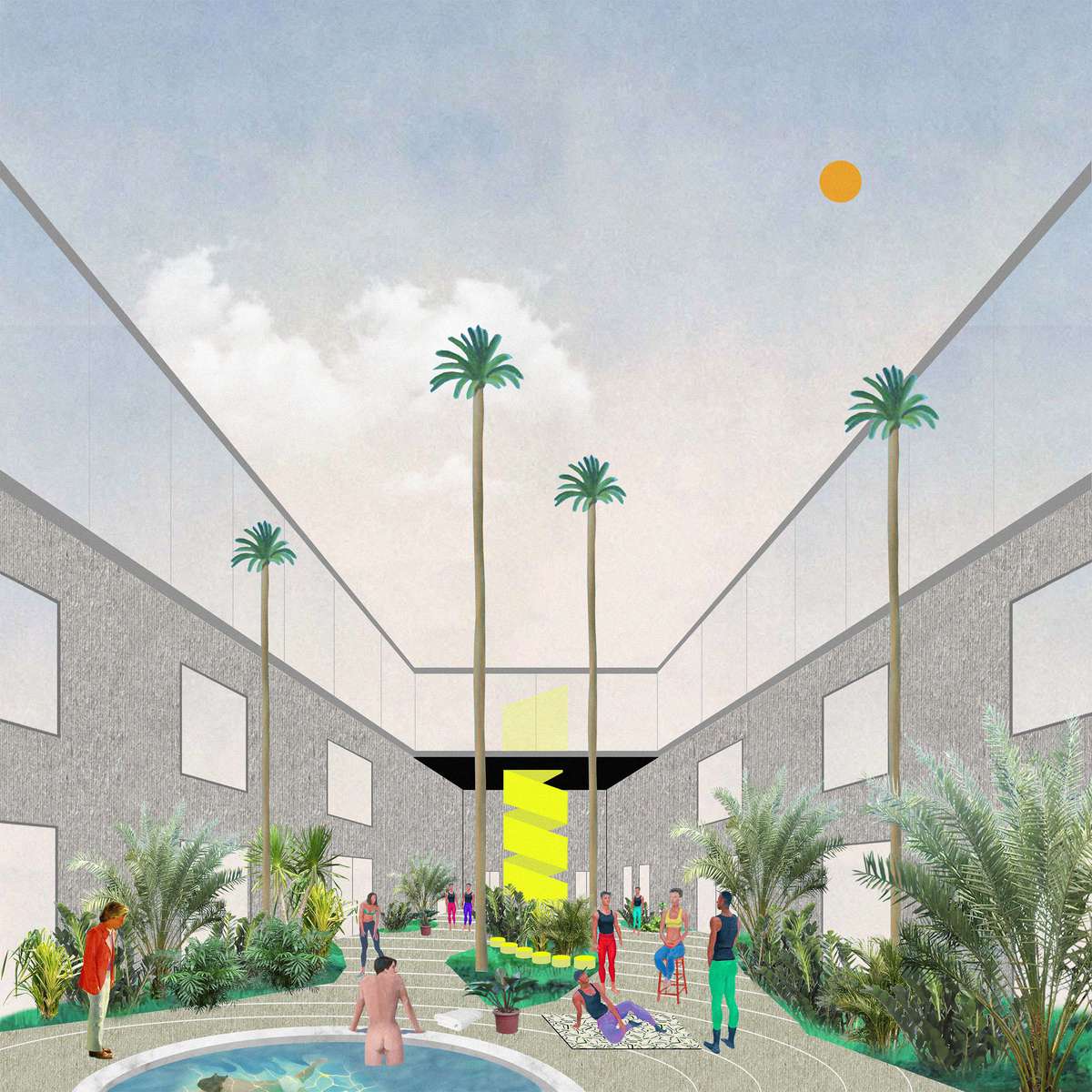
Those new complexes will be inserted over the existing urban fabric of the hosting towns, taking advantage of the previous architectures and complementing them when needed, as in the example of the residential units, where the local block is adapted as bodycaring spaces and a new block with rest spaces is placed over it.
The Possibility of an Island
The Possibility of an Island

- Systemic changes
The productive system has drastically evolved in the recent years, with a crescent automatization of industrial activities, where human intervention is becoming more intellectual and less physical than ever. The production of sensitivities and emotions is the new main sector and production is not going to be as we knew it anymore, as material production is going to be completely detached from human bodies. We can consider then that the intellectual is the worker of the 21st century while Franco Berardi defined this new social class as the cognitarians.
In this ecosystem of production and evolution it is proposed to take advantage of the territorial isolation of the countryside to develop productive structures based on intellectual activities (that are not considered as work anymore but as leisure). A place where the most prepared cognitarians will have the opportunity to know and learn from each other, giving them a real alternative to their precariousness or exile situation.
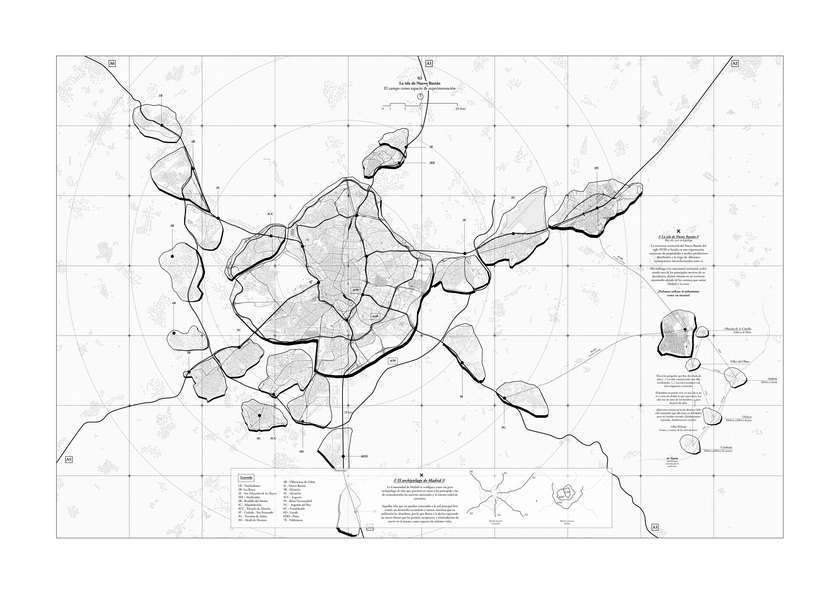
The territorial and infraestructural isolation of Nuevo Baztán enables the possibility of stablishing and experimental productive community, far from Madrid and its economical dominance.
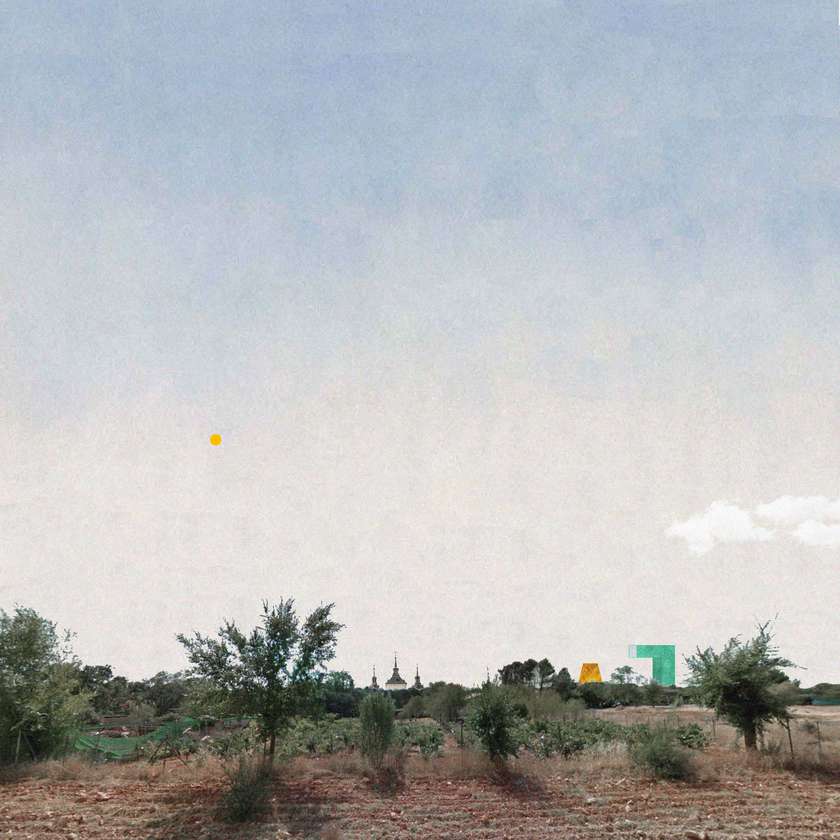
The new architecture of production will resemble those who already inhabit the countryside: water deposits, barns, sheds,...elements that articulate both visually and territorially the rural space.
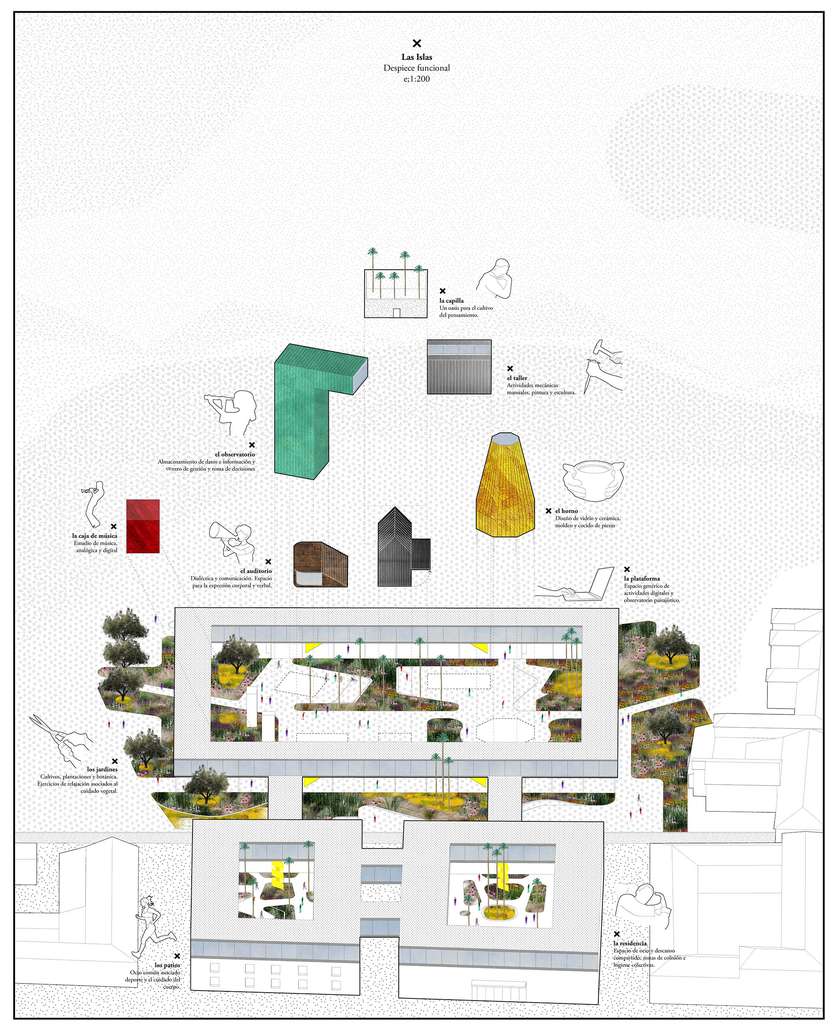
Different architectural pieces will host both manual and digital creative activities, helping cognitarians to trigger their potentials and find new inspirations from each other.

The digital ring will host a continuous open workspace, that surrounds the manual work pieces where physical creative works will be deployed, such as sculpture, ceramics, glass production, theatre, debate…
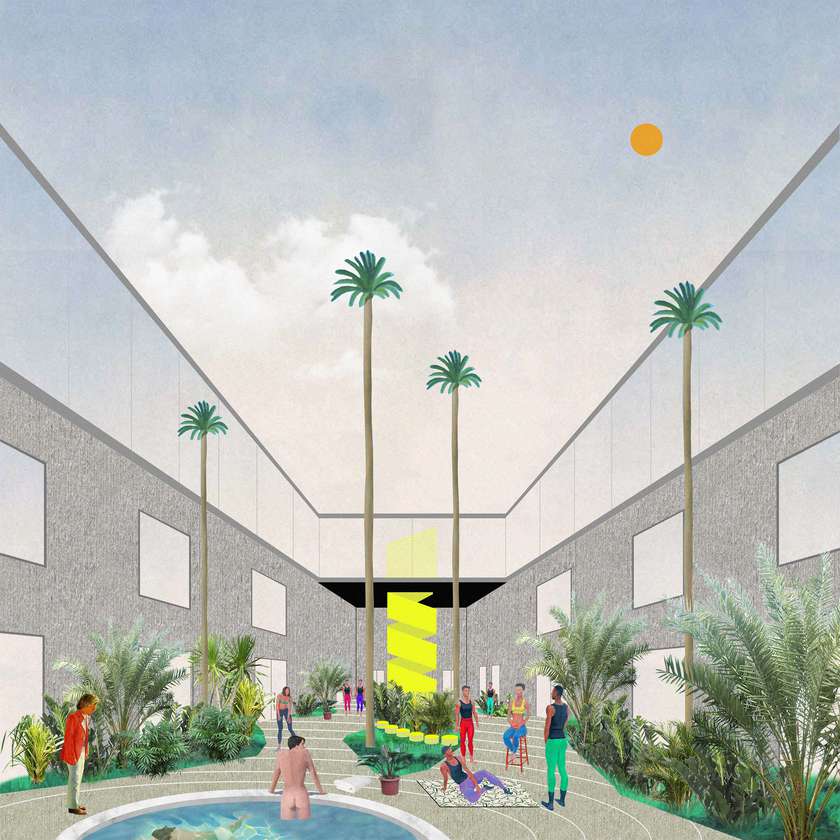
Those new complexes will be inserted over the existing urban fabric of the hosting towns, taking advantage of the previous architectures and complementing them when needed, as in the example of the residential units, where the local block is adapted as bodycaring spaces and a new block with rest spaces is placed over it.